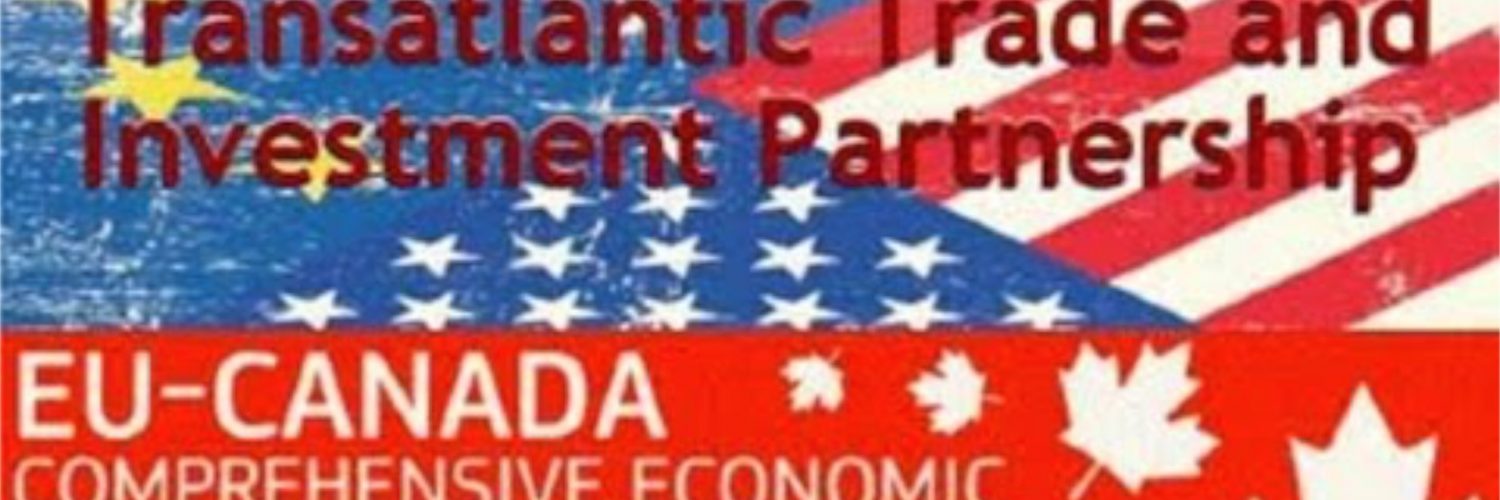Activities of investors and transnational corporations not only interfere in the regulatory space of States but attack the very essence of sovereignty and self-determination says UN Human Rights Council Independent Expert, Alfred de Zayas
July 5, 2016 Produced by Lynn Fries
TRANSCRIPT
ALFRED DE ZAYAS: As we all know, states frequently ignore human rights and international law because there is no effective enforcement thereof. The anomaly is that since the General Agreement on Tariffs and Trade and the creation of the World Trade Organization, States have treated trade as an end in itself. Bilateral investment treaties and free trade agreements have been equipped with enforcement possibilities lacking in the international human rights treaty regime. John Ruggies’ famous “Guiding Principles On Business and Human Rights” are good, but they are pious pledges without enforcement machinery. Alas, experience has shown that so-called self- regulation does not work.
LYNN FRIES, TRNN: Welcome to The Real News. I’m Lynn Fries in Geneva. That was Alfred de Zayas, a professor of international law at the Geneva School of Diplomacy and an Independent Expert appointed by the Human Rights Council. He was speaking at a recent event on How to Hold Transnational Corporations accountable for Human Rights Violations. In this brief we look into what he says about trade and investment agreements and their impact on democracy, the rule of law, and human rights. And notably ISDS, the Investor-State Dispute Settlement mechanism, contained in most trade and investment agreements. We open with a clip of Alfred de Zayas reporting to the Human Rights Council on a paradox that he says must be confronted and resolved.
DE ZAYAS: In this report I address multiple threats to the international order posed by activities of investors and transnational corporations that entail much more than just interference in the regulatory space of states, but actually constitute an attack on the very essence of sovereignty and self-determination, which are founding principles of the United Nations. The paradox must be confronted and resolved that whereas states have ratified human rights treaties with immediate application, such as the International Covenant on Civil and Political Rights, and have agreed on the progressive implementation of economic and social rights, they have also entered into trade and investment agreements that hinder, delay, or render impossible the fulfillment of their human rights treaty obligations thus violating the principle of “pacta sunt servanda” [Latin for “agreements must be kept”].
FRIES: As explained by the ACLU, the Covenant on Civil and Political Rights is a key international human rights treaty providing a range of protections for civil and political rights. The ICCPR, together with the Universal Declaration of Human Rights and the International Covenant on Economic, Social and Cultural Rights, are considered the International Bill of Rights. Adopted by the UN General Assembly in 1966, the International Covenant on Civil and Political Rights came into force in 1976. Upon ratifying the treaty, countries are obligated to protect basic human rights. As of December 2013, the ICCPR has been ratified by 167 countries.
The US ratified the ICCPR in 1992. Upon ratification, it became the “supreme law of the land” under the Supremacy Clause of the US Constitution, which gives acceded treaties the status of federal law. Implementation of the ICCPR is monitored by a Human Rights Committee composed of Independent Experts with recognized competence in the field of Human Rights.
We continue with clips of Alfred de Zayas at the UN General Assembly in New York. He reports further on the paradox that must be confronted.
DE ZAYAS: Precisely because States are bound by the ICCPR and ICESCR, they must ensure that non-state actors operating in their territories and extra-territorially do not violate human rights, do not exert pressure on governments to weaken social regulations or threaten to reduce investments if their demands are not met. Paradoxically, although States are bound to observe the public participation clause of article 25 ICCPR, they negotiate international investment treaties in secret and exclude key stakeholders. Sometimes opaque treaties are fast-tracked through Parliaments so as to avoid public participation. This renders these agreements democratically illegitimate.
FRIES: The Trans-Pacific Partnership being a case in point. One the eve of the TPP vote, as Independent Expert, Alfred de Zayas released a statement urging Pacific Rim countries not to sign TPP. The statement emphasized that trade agreements are not standalone legal regimes but must conform with fundamental principles of international law including transparency and accountability. That the Trans-Pacific Partnership was the product of secret negotiations without multi-stakeholder democratic consultation. And that TPP is fundamentally flawed and should not be signed or ratified unless provision is made to guarantee the regulatory space of states. In contrast, here’s a clip of the October 2015 Atlanta Ministerial closing that put TPP on the table.
AMB. FROMAN, CHIEF USTR: It’s my pleasure as the host of this ministerial to read the ministers’ joint statement. We, the trade ministers of Australia, Brunei Darussalam, Canada, Chile, Japan, Malaysia, Mexico, New Zealand, Peru, Singapore, the United States, and Vietnam, are pleased to announce that we have successfully concluded the Trans-Pacific Partnership negotiations. [Applause] After more than five years of intensive negotiations, we have come to an agreement that will support jobs, drive sustainable growth, foster inclusive development, and promote innovation across the Asia Pacific region. Most importantly, the agreement achieves the goal we set forth of an ambitious, comprehensive, high standard, and balanced agreement that will benefit our nations’ citizens.
To formalize the outcomes of the agreement, negotiators will continue technical work to prepare a complete text for public release, including the legal review, translation, and drafting and verification of the text. We look forward to engaging with stakeholders on the specific features of this agreement and undergoing the domestic processes to put the agreement in place.
FRIES: As we know, signing is not ratification. In a recent blog, Mr de Zayas has said that citizens of all States that have signed the TPP treaty should demand revision of the investment chapters and the abolition of the planned investor-state dispute settlement tribunals which in the past have ignored national laws and even the judgments of the highest [national] courts. And that this is incompatible with the role of the State as protector of the public interest. And the same applies to the equally dangerous CETA between Canada and the European Union. That it’s now the duty of parliaments to review every TPP chapter, and necessary revisions must be a condition to ratification. And even if TPP would be ratified and enter into force, its incompatibility with the rule of law would remain and the General Assembly should refer the matter to the International Court of Justice.
On the Trans-Atlantic Trade and Investment Partnership, Mr. De Zayas in commenting on the proposed creation of an Investment Court System (ICS) stated that he considered this a labeling scam. That the ICS can only be a pseudo-court with one-way jurisdiction.
In a hearing before the Parliamentary Assembly of the Council of Europe, Alfred de Zayas explained why the Investor-State Dispute Settlement, ISDS, mechanisms contained in most trade and investment agreements are incompatible with democracy, the rule of law and human rights. And that the proposed TTIP Investment Court System is but a zombie of ISDS and suffers from many of the same fundamental flaws. This on April 19, with President Obama soon after making an official visit to Germany in a push to get the U.S. 28 EU country TTIP signed by year end. To get the story we go back to New York and the UN General Assembly.
DE ZAYAS: My 2015 reports to the Human Rights Council and General Assembly explore systemic problems associated with the international investment regime, which too often has hindered states in the fulfillment of their human rights treaty obligations. Grave issues of incompatibility with human rights norms must be addressed, both from the procedural aspect of the elaboration, negotiation and adoption of free trade and investment agreements, and from their substantive impacts.
My report to the Human Rights Council focuses on bilateral investment treaties and multilateral trade agreements. The report I am presenting to you now highlights the negative effects of ISDS–the Investor-State Dispute Settlement mechanism that accompanies most of these agreements. It shows that necessary fiscal, budgetary, labor, health, social and environmental policies initiated by governments have often resulted in frivolous lawsuits by investors before this unbalanced form of dispute settlement, where only investors can sue governments but not vice versa.
It also refers to numerous cases where ISDS arbitrations have penalized States for adopting regulations. For example, to raise the minimum wage, protect food security, access to generic and essential medicines, and reduce smoking as required under the WHO Framework Convention on Tobacco Control. Expansive interpretations by specialized corporate-sector arbitrators of terms like “investment,” “indirect expropriation,” and “fair and equitable treatment” are well beyond their legal meaning and outside what could be derived from Article 31 of the Vienna Convention on the Law of Treaties.
There is no justification for the existence of a privatized system of dispute settlement that is not transparent nor accountable and often ends with inconsistent, unpredictable and arbitrary awards that courts worldwide should refuse to implement as contrary to national and international ordre public. Over the past 25 years ISDS has undermined fundamental principles of the United Nations, state sovereignty, democracy and the rule of law. Far from contributing to human rights and development, they have resulted in growing inequality among States and within them. ISDS cannot be reformed. It must be abolished.
ISDS is not needed. Investors can have their day in court before national jurisdictions bound by Article 14 of the International Covenant on Civil and Political Rights, which, unlike ISDS, offer multiple appeal instances. Investors can also rely on diplomatic protection and State-to-State dispute settlement procedures. Rather than attempting to privatize the rule of law, what is necessary is a strengthening of the domestic and regional systems of public courts, ensuring their adequate funding.
FRIES: We have to leave it there. As we conclude this brief, many thanks to Independent Expert, Alfred de Zayas, and the Office of the High Commissioner of Human Rights. And thank you for joining us on The Real News Network.
END TRANSCRIPT
Alfred de Zayas is the United Nations independent expert on the promotion of a democratic and equitable international order
Originally published at TRNN



